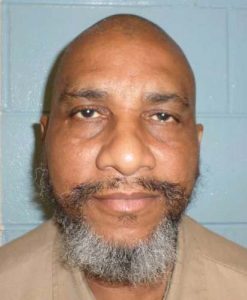Board rejects parole for convicted killer of Brewton teen


By DON FLETCHER
News Staff Writer
As expected, Edward Russell Dubose, who was found guilty twice — once by a jury, once by his own admission — of the brutal 1988 murder of a Brewton teen, will spend at least five more years behind bars.
The Alabama Board of Pardons and Paroles rejected last week a parole request from Dubose, who has been incarcerated for 32-1/2 years (including 3,175 days in the county jail). The board’s ruling means that he will not be eligible for parole consideration again until June 1, 2026.
Dubose, 63, is serving a life sentence (with possibility of parole) after entering a guilty plea in 1997 to charges he killed 16-year-old Stephanie Marie King nine years earlier by strangling her with the cord from the sweatpants she was wearing.
The teen was abducted from Alco Baptist Church, where she was the church organist and also worked part-time as a custodian, on Saturday, October 22, 1988. Stephanie, a senior at T.R. Miller High School when her life was taken, was cleaning the church, working to save money for college, on that fateful day.
Former Escambia County Sheriff Grover Smith, who was chief of police in Brewton when the murder happened and was the primary investigator on the case, said this week he wished the period between parole eligibility was longer, although he doubts Dubose will ever be a free man again.
“It’s unfortunate that the family (of the victim) has to go through this every five years,” Smith said. “I wish they could stretch it out farther, but that’s our law. However, pushing (Dubose’s eligibility) to the maximum is a strong indicator that (parole board members) are not seriously considering granting him parole.”
On the last day of Stephanie’s life, Brewton PD Lt. David Lovelace received a call from her father, reporting that she was missing. A search was launched in the area around the church and at several fast-food establishments she was known to frequent.
A member of the search party, Wayne Overstreet, eventually came upon the 1976 Ford Maverick the victim had been driving that morning, parked off the road in a heavily wooded area. Court documents show that Overstreet approached the car and saw the victim in the front seat, slumped over toward the passenger side. The vehicle’s doors were locked.
Fingerprints and other evidence — including a burnt purse and a comb found on the property of Dubose’s mother and identified as belonging to the victim — pointed to Dubose as the teen’s assailant, and he was eventually arrested.
He was initially charged with capital murder (because the murder was committed during a kidnapping and sexual assault), first-degree rape and first-degree sodomy. Court documents show he was convicted by a jury on all three counts on February 24, 1990.
The jurors voted 11 to 1 for the death penalty, but the conviction was overturned on appeal five years later because Dubose’s lawyers had not been allowed to hire their own DNA experts. He was then allowed to plead guilty to a charge of simple murder, for which the death penalty is not an option.
Smith lives near Catawba Springs Baptist Church Cemetery, where Stephanie is buried. He said he is reminded of the child and the heinous crime each time he drives past her final resting place.
“I live just around the corner from the cemetery, about a quarter-mile,” he said. “I never go by there that I don’t think about her.”
The convict’s lawyers maintain their client, who is currently serving his sentence at Staton Correctional Facility near Elmore and who has not earned any “good time” credit, has “turned his life around” while in prison.
But Smith — a 46-year law enforcement veteran who was Brewton PD Chief for more than 10 years and county sheriff for 16 — said he doesn’t feel Dubose deserves to ever breathe free air again.
“I was on that case from Day 1,” Smith said. “Dubose has made no move toward rehabilitation, has never expressed any regret or said he’s sorry. What he did was just unforgiveable. I hope and pray that the last breath he ever draws will be inside a penitentiary.”
